Subscribe to our e-newsletter
Keep up to date with the latest news and publications from Sugar Nutrition Resource Centre.

When it comes to pasta sauce and condiments, tomato-based sauces and ketchup are two popular choices in Australian households. Both are incredibly versatile and can add a burst of flavour to your favourite dishes (plus, kids tend to love it on everything).

Isomaltose is a lesser-known member of the carbohydrate family. As a disaccharide composed of two glucose molecules linked by an α-1,6-glycosidic bond, isomaltose has some distinct characteristics. For example, Isomaltose has different digestibility properties than other sugars like maltose. It can have a slower absorption rate, leading to a slower and more controlled release of glucose into our bloodstream, and it does not contribute to tooth decay and for these reasons has been used as an alternative sweetener. Isomaltulose is an approved sweetener in many countries including Australia
...
When it comes to sugar substitutes, erythritol has become a popular option for those who crave sweetness without the calories associated with many natural sugars. But what exactly is erythritol, and how does it measure up to traditional table sugar nutritionally?
This article explores the sweetener erythritol, its production, chemical composition and its place in the world of sweeteners.

The human body has many intricate metabolic processes to utilise various sugars, including glucose and fructose, for energy to fuel our daily lives. Whilst glucose is the primary energy source for most of our cells, fructose also serves as an essential substrate for various metabolic pathways in our bodies. One intriguing aspect of our body's sugar metabolism is the liver's preference for fructose over glucose. We explore the biochemical mechanisms behind the liver's preference for fructose and touch on the physiological significance of this phenomenon.

Caramelisation is a fascinating culinary process that can add depth and complexity to your favourite dishes, turning ordinary ingredients into rich, flavourful delights. But what happens to the sugar content of a dish during caramelisation?

The process of reviewing the Australian Dietary Guidelines has swung back into motion. After stakeholder surveys, some literature searches and a review of international food-based guidelines, the Expert Committee has now identified priority topics and research questions based on the following:
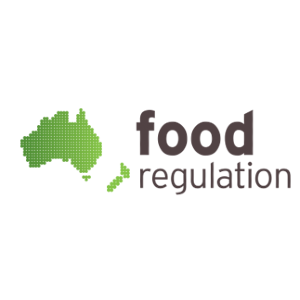
The communique from the latest Food Ministers Meeting (FMM) held in Wellington, New Zealand on July 28 to discuss policy and regulatory matters included an update on added sugars labelling.

Jimmy Louie is an Associate Professor of Dietetics at the Department of Nursing and Allied Health of the Swinburne University of Technology. A/Prof Louie has a strong track record in nutritional epidemiology and is best known for his research on the association between carbohydrate nutrition (specifically glycemic index and added sugar consumption) and health outcomes.

A study on the nutrition and health claims used on foods and beverages in New Zealand has revealed that claims about vitamin and mineral content and gluten were the most common. Researchers examined 700 products across 16 product categories and compared this with previous data collected using similar surveys in 2014/15 and 2016/17.

The World Health Organisation (WHO) has published a new guideline on the use of non-sugar sweeteners intended to help inform the development of public health policies and programs.

Jimmy Louie is an Associate Professor of Dietetics at the Department of Nursing and Allied Health of the Swinburne University of Technology. Associate Professor Louie has a strong track record in nutritional epidemiology and is best known for his research on the association between carbohydrate nutrition (specifically glycaemic index and added sugar consumption) and health outcomes.
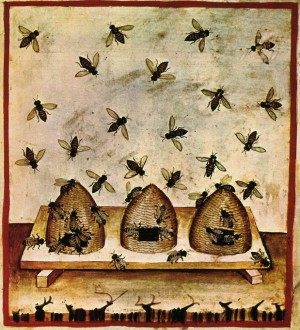
Humans are distinguished from other apes in having larger brains and an unusual life history that combines high reproductive output with slow childhood growth and exceptional longevity.

Healthy People 2030 is the plan for improving health and wellbeing in the USA. It includes 358 core, measurable objectives and 14 of these relate to nutrition and healthy eating. One of these objectives is to reduce the consumption of calories (kilojoules) from added sugars by people 2 years of age and above.

The Anthony Albanese Labor government will establish an Australian Centre for Disease Control, or CDC (avoiding the very rock ‘n roll acronym of ACDC). The CDC aims to improve the response and preparedness for public health emergencies such as pandemics.
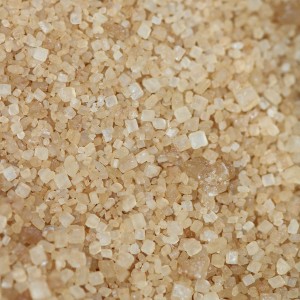
Turbinado sugar is a type of raw sugar that is processed minimally so that it retains some of the natural molasses content that’s found in the sugar cane it's made from.
Turbinado sugar is known for its distinctive golden colour and has a slightly richer flavour when compared to white sugar. In this article, we explore what turbinado sugar is and how you can incorporate it into a healthy diet.

Verbascose is a type of carbohydrate that is part of the family of complex sugars known as oligosaccharides. Verbascose is found in certain plants, including legumes such as soybeans, lentils, chickpeas and mung beans.

Stone fruits are a delicious, healthy and nutritious type of fruit that includes peaches, plums, cherries, apricots, and nectarines. They are named for their single seed that looks like a stone. They are popular for their sweet flavour and juicy flesh and are available from early November to late February in Australia. When consumed as part of a healthy diet, they are a great source of vitamins, minerals, and fibre.

Rice is a common staple in many cultures around the world, and it is a key component of many healthy, tasty dishes. Even though rice is a healthy addition to many meals, there is a common belief that rice breaks down into sugar in the body, leading to weight gain and other health problems. We examine how rice is digested and the implications for our health.

Sugar is a type of carbohydrate that is found in many foods, drinks, fruits, vegetables and dairy products. Sugar comes in a variety of different forms, from naturally occurring sugars like fructose found in fruit and honey or lactose found in dairy products to sucrose (table sugar) we add to our tea or coffee or use in baking.

Fructose is a type of sugar that occurs naturally across a variety of foods, including fruits, honey, and some vegetables. It may also be used as a sweetener in some processed foods and drinks we consume. While fructose is a natural component of many healthy foods (fruits and vegetables, for example), excessive consumption of fructose (such as high-fructose corn syrup) has been linked to health problems including obesity, diabetes, and fatty liver disease. It should be noted that high-fructose corn syrup is not widely used in Australia, but some imported foods may contain it. In addition,
...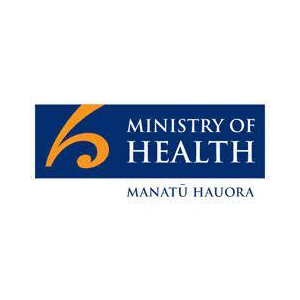
The New Zealand Ministry of Health has released key findings from the 2021-22 Health Survey . The snapshot below shows vegetable and fruit intake is significantly below recommendations, hazardous alcohol intake remains high, physical activity levels are insufficient, and only two-thirds of people brush their teeth as recommended.

|
Preventive Health Conference 2023 – Prioritising Prevention - Action Now! 2-4 May 2023, Adelaide Convention Centre, South Australia -Hybrid Dietitians Australia 2023 – it’s time! 23-25 July 2023, Melbourne Convention and Exhibition Centre, Victoria |

Dr Alan Barclay, Accredited Practising Dietitian, completed a PhD on carbohydrate and the risk of developing lifestyle-related diseases like type 2 diabetes. He was previously Research and Development Manager / Head of Research at Diabetes Australia NSW, and Chief Executive / Scientific Officer the Glycemic Index Foundation. He is currently a consultant and private practitioner, a Honorary Research Associate at the University of Sydney and editor of the University’s GI News. He has co-authored 40 peer-reviewed articles and has presented his research at scientific
...
We all know the foods we eat provide our bodies with the energy necessary to live and move. The energy from the foods we digest also helps our bodies regulate and maintain our autonomous systems that run everything from our vision and nervous system to our sympathetic and parasympathetic systems that help control our lungs, blood pressure and heart rate.

Headaches are a common condition that affects millions of people around the world. In this article, we explore the science behind how diet and sugar consumption may affect the body and result in headaches for some people.
Various factors, including changes in blood sugar levels and the release of certain hormones in the body, and food chemical intolerance have been known to cause headaches; however, it's worth noting that not everyone is affected by diet in the same way, and some people may be more sensitive to its effects than others.
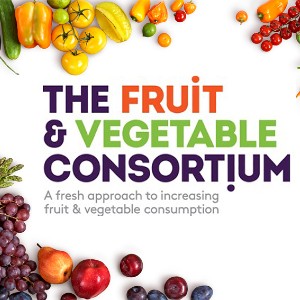
A new report published by KPMG from the Fruit and Vegetable Consortium (FVC*) and Medibank says eating habits worsened over the COVID-19 pandemic and recommends increased action to increase vegetable consumption. More than $200 million could be wiped from the Australian health budget if Australians ate an extra cup of vegetables each day. As well as improving health, increasing vegetable consumption will also benefit growers, regional communities, and retailers.
The report recommends:

One of the many challenges of our food system and the economy generally is to decarbonise production systems, and become more fuel-secure by producing it here. Producing biofuel is one way to do this and making it from Australian sugarcane also has regional economic benefits by supporting more jobs through the supply chain. Biofuels are renewable liquid fuels, the most common is bioethanol but also bio-aviation fuel (BAF). In the case of sugarcane, biofuel can be made from the waste material-typically molasses- left after processing so it’s a win-win.
In a new pilot biorefinery
...
Sugarcane was in Australia from the beginning of white settlement, having been brought in the ships of the first fleet. Like many other crops, it did not do well in the early days of the colony. Shifting to the warmer climate of Queensland in 1862 was the change needed to start the commercial sugar cane farming and milling industry.
With growing labour requirements, a history of using convict labour, rampant slavery in other parts of the world and a lax approach taken by the Queensland
...
Natural sugars come from various sources, including sugar cane, sugar beets, honey, maple syrup, dairy products, and a wide variety of fruits and vegetables. Sugars make up the simplest group of carbohydrates we consume, and one of the most common forms of sugar we consume is sucrose. When we talk about ‘sugar’ or ‘table sugar’, more often than not we’re talking about sucrose which is made from a 50-50 mix of glucose and fructose.

Sugar is a naturally occurring ingredient in many foods that humans have enjoyed since we discovered honey, fruits and vegetables. Different foodstuffs provide different levels of energy, sweetness, nutrition and taste to the human body giving us a wonderful array of naturally sweet foods to choose from.

Many people look for sweetener alternatives for a variety of different reasons. Health and diet is one, lifestyle is another and some choose a range of different sweeteners for moral reasons (many vegans, for example, will look for an alternative to honey). As more people look for alternative sweeteners to add to cooking, meals and baked goods, the popularity of rice syrup (also called brown rice syrup or rice malt syrup) is on the rise but is it truly a healthy alternative to other sugar products?

Disaccharide Intolerance is an inherited metabolic disorder that mostly affects infants and young children and is characterised by a lack of the enzymes sucrase and isomaltase in the body. This enzyme combination (sucrase-isomaltase) helps in breaking down certain sugars (sucrose for example) and also assists with starch digestion.

Honeydew melon is a popular melon that is recognisable by its smooth rind and pale green flesh. Like many other popular melons, the honeydew is an excellent source of vitamin C with one cup delivering more than half the recommended daily intake.

It’s estimated potatoes have been part of the human diet for thousands of years and it’s little wonder given their low rate of spoilage during transportation, low cost of production and their ability to satiate hunger. As part of a modern diet, the humble potato is full of healthy carbs and fibre. They’re low in calories and contain a range of vitamins and minerals.

Polysaccharides are one of the most abundant carbohydrates found in the everyday foods we consume. They are made up of multiple smaller components called monosaccharides bound together with glycosidic bonds. Polysaccharides play a range of roles in the human body too, from energy storage to structural elements for cell membranes and sending cellular messages around the body. Some examples of polysaccharides in plants are starch and cellulose, and chitin in insects.

Naturally occurring sugars play an important role in providing energy and a variety of nutrients the body needs to remain healthy. Many of the foods we eat contain a range of sugar types. For example, a wide variety of fruits and vegetables contain sugars including fructose, glucose and sucrose along with fibre and many essential vitamins and minerals. Milk and cheese are high in lactose – another type of common sugar found in many dairy products.

A survey by research group Kantar has shown New Zealanders are spending 35% more on food compared to last year, with 40% of households now spending more than $200 a week. Inflation-related price increases are also impacting on Australian food prices, contributing a cost-of-living pressures on households in both countries.

The Nutrition Society of Australia annual scientific meeting ‘Sustainable nutrition for a healthy life’ will take place 29 November-2 December in Perth Western Australia.

You might have heard of the ‘Planetary health diet’ included in the landmark study from the EAT-Lancet Commission and it was this work that launched the concept of planetary health.

A team of scientists led by University of Otago are developing a uniquely New Zealand eating pattern called the New Zealand wellbeing diet, He Rourou Whai Painga, they hope will help reduce the impact of chronic diseases such as heart disease and diabetes. The dietary approach will focus on locally produced vegetables, fruits, wholegrains, nuts and seeds and olive oil, and moderate amounts of seafood. The project also includes food and beverage industry collaborators, large and small. The study will recruit 200 participants and will take a whanau-based (family) approach to help introduce
...
The Ozfits Study is the first of its kind Australia-wide survey of infant and toddler feeding practices and food intake. Dr Merryn Netting, Advanced APD, from the South Australian Health & Medical Research Institute and Adelaide Women’s and Children’s Hospital, was interviewed on the Dietitian Connection podcast and has provided key insights including:

New research from Deakin University has assessed the amount of sugars and non-nutritive sweeteners (NNS) used globally and unsurprisingly perhaps, found the use of NNS has increased significantly.

Sugar has been part of the human diet for as long as we’ve wandered the earth. Every culture, both modern and ancient has foods that contain natural sugars and in more recent years, added sugars are enjoyed and consumed across a wide variety of dishes. Australia is in the top ten producers of sugarcane in the world and the quality of the sugar we grow, mill and refine is some of the highest in the world. We adhere to the CODEX and the ANZ Food Standards Code to produce high quality and safe food, but what is the process to test the sugar we produce for quality?

The New Zealand Ministry of Education has asked for public feedback on its proposal to introduce regulations in schools to only provide healthy drinks for sale: water, milk and non-dairy alternatives. The consultation closed on June 2. If these changes are agreed, they will take effect from Term 1, 2023, after the current National Administration Guidelines (NAG) 5b ceases on January 1, 2023.

Fiscal policies to promote healthy diets: policy brief
https://www.who.int/publications/i/item/9789240049543
Provides information and policy options to incentivize consumption of healthier options and disincentivize the consumption of less healthy options, such as taxes on less healthy foods and beverages and subsidies on healthier foods and
...
The idea of ultra-processed foods (UPFs) as defined by the Nova classification system is gaining traction with more research showing associations between their consumption and poor health outcomes.

In a remarkable Australian Federal election that saw the loss of many Liberal party member’s seats and the emergence of the so called ‘teal independents’ (predominantly female candidates with a mix of the Greens and Liberal party (blue) policies), the Australian Labor Party has been swept to power and Anthony Albanese is the new Prime Minister.

If you’re interested in the broader history of food and specifically sugar, this article by Professor Richard Mithen, Chief Scientist from High Value Nutrition is worth a read.

The use of low-carbohydrate diets in the dietary management of diabetes is a contested field, and these diets remain popular in the community. We dig deeper into the topic.

What are Australians eating more and less of, and how are sugars tracking?

The European Food Safety Authority (EFSA) address the question, how much sugar is OK to eat for health?

It’s been five years since we spoke with Professor Louise Burke about low-carb diets for sports and we ask her if anything has changed.

Sugar is a naturally occurring carbohydrate that can be found in many common foods such as fruits, vegetables, grains and dairy products. All carbohydrates are macronutrients. The amount of total sugars in the foods we consume varies depending on the type of food, if it’s manufactured and what’s added to it or not.

Fructose – also called fruit sugar, can be found in all fruits along with another type of sugar called glucose. Fructose is naturally in honey, maple sugar, fruits, berries, some vegetables (e.g. cassava, onions, potatoes) and even found in some grains.

Australia’s children is a new report issued by the Australian Institute of Health and Welfare (AIHW) that examines the most recent data on children and families across seven domains: health, education, social support, household income and finance, parental employment, housing, and justice and safety.
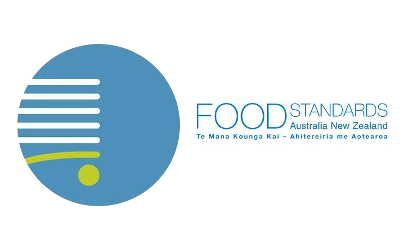
Food Standards Australia and New Zealand (FSANZ) released a report in June 2021: Review of nutrition labelling for added sugars. The review was undertaken at the request of Food Ministers with the aim of ensuring food labels provide adequate contextual information about sugars to enable consumers to make informed choices in support of dietary guidelines.

We summarise this 87-page document so you’re up to speed on this important policy development.

Online food delivery via smartphone apps have revolutionised food purchasing. Having food delivered during COVID-19 lock-downs was a super-convenient service and a treat to help endure social isolation. However, it has a downside that may endure.

The Joint Position Statement on Oral Health and Nutrition underlines the importance of Accredited Practising Dietitians and oral health professionals working together to achieve better outcomes. Nutrition and oral health influence each other. Mouths and teeth influence the ability to eat a balanced diet, but too much or not enough of some foods can increase the risk of tooth decay and gum disease.

The Australian Medical Association has released a blueprint to make Australia the healthiest country in the world. They propose a sugar tax as an important component, and the only specific dietary recommendation they make. There have also been calls for a sugar tax in New Zealand. Sugar taxes are an example of a ‘sin tax’.

Disaccharides are found among a variety of common foods we consume on a daily basis. Often referred to as ‘double sugars’, disaccharides are created when two small sugar molecules (called monosaccharides) bond together to form a larger disaccharide. For example, when glucose and fructose are bonded, this creates sucrose.

Popcorn is a popular snack that is made from the dried kernels of a particular variety of corn. Dried corn kernels can be made into popcorn in a variety of ways. They can be cooked in a small amount of oil on the stovetop, air popped in the microwave or popped in a dedicated popcorn machine.

Sports drinks have gained popularity over the past few decades and are readily available at many supermarkets, tuckshops and sporting events.

Most of the sugar available in Australia and New Zealand is produced from the sugar cane plant. Sugar is also produced from sugar beets in other parts of the world like America. The Australian sugar cane industry harvests around 350,000 hectares of sugar cane which produces over 4 million tonnes of sugar each year.

If you’ve ever consumed foods that have the term malt or malted in the ingredients list, there’s a good chance you’ve consumed maltose. While maltose is not found naturally in high quantities, there are a range of foods that contain this sugar including breads, wheat, peaches and energy bars.

The glycemic index (GI) is a method of ranking carbohydrates based on their effect on blood glucose levels in the body. Whilst this effect will slightly differ from person to person, it is a good indicator of how different carbohydrate foods and drinks will affect blood sugar levels in the body.

A scientific innovation to create healthier sugar has been recognised by the United Nations.
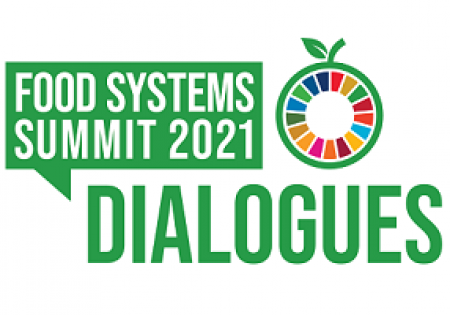
Find out how Australia and New Zealand participated in this global event.

How much sugar are different countries around the world consuming, and how does Australia and New Zealand compare?

There are many types of sugars we consume on a daily basis, from the sugars naturally found in fruits, vegetables and milk, through to sugars like raw sugar, table sugar, molasses and glucose, which are added to foods and drinks in cooking and packaged foods.

Humans have used a variety of preserving techniques throughout history to keep food from spoiling. The advent of refrigeration has only been a relatively recent capability for us, in the grand scheme of things. For centuries we’ve had to rely on techniques like smoking, salting and sugar curing to preserve foods for later use.
_thumbnail.jpg)
Food stress has heightened during the pandemic, but new modelling demonstrates how nutritional quality and affordability can be improved.

The process of reviewing the Australian Dietary Guidelines is underway with the announcement of the members of the Dietary Guidelines Expert Committee on 15 September.

A ‘Tolerable Upper Intake Level’ impossible to set.

What we can learn about energy balance from the animal world.

After sugar cane is processed in a mill, it is transported to refineries in the form of raw sugar. The final product from a sugar mill isn’t the raw sugar we’re all familiar with on supermarket shelves, it is a non-food-grade raw sugar that requires further refining before it’s ready to be sold and consumed.

One of the most prominent natural sweeteners in the world is sugar derived from sugar cane. But to get this popular product from paddock to plate takes months of growing, weeks of harvesting and milling and then processing before it can end up as the sweet, crystallised product we all know as raw sugar.
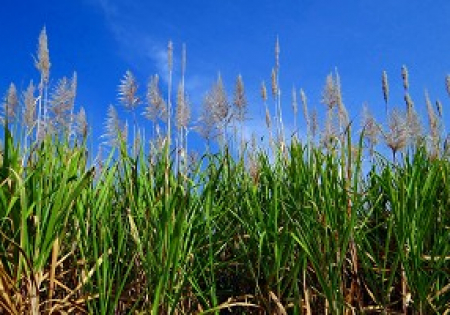
On any given day, many of us will use and consume a product we’re all familiar with – sugar. This sweet, popular commodity is made from the sugar cane plant – a tall perennial grass that grows in subtropical and tropical regions throughout the world.

Fruits and vegetables are consumed in every country across the globe. They are made up of multiple edible components such as the flowers, fruits, stems, roots, seeds and leaves that are used in meals every day.

A natural approach to weed control might already be in your pantry.

A global pandemic may be the shock we need to boost resilience in the food system and address food insecurity.

A new book written by a dietitian takes a sensible approach to a often controversial subject: sugar.

UK research shows there is confusion around the increasingly used term ‘ultra-processed foods’.

Dementia is a serious health challenge in Australasia and globally, so it is worth examining how it might be prevented.

Rice is a staple in most countries throughout the world. Convenient and easy to cook, it brings flavour and adds body to foods like curries, stir fries, risottos and even desserts. Many of us are curious about the nutritional content of rice. We may also be wondering about its carbohydrate content and whether it contains any sugar?

Investment in prevention of diabetes could have a significantly positive impact on New Zealand’s economy and society.

We take a look at the findings of a new study into the health profile of breakfast cereals.

A radical re-think is needed in preventive health that addresses the root causes of ill-health and takes a holistic, collaborative, systems approach to improving health and wellbeing.

Native to South America, the cassava plant is a starchy root vegetable or tuber that has a nutty-flavour and white flesh. It is also called manioc or yucca in different parts of the world.

Jaggery is a sweetener that is made from cane sugar. Most of the world's jaggery is produced in India. Jaggery has a unique golden colour and caramelised flavour that is a result of how it is processed.

There are many different types of sugars, both natural and added, that are part of the foods we eat every day. One of the most common ingredients in many foods we consume is sucrose, or what many of us would call table sugar, plain sugar or cane sugar.
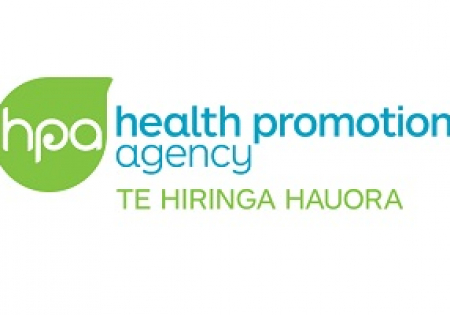
A one-stop shop for resources to promote healthy eating, physical activity and sleep in New Zealand.
 small_thumbnail.jpg)
A comprehensive diabetes resource from Harvard University, although not a must-have in Australia and New Zealand.

Alternative sweetener use is widespread – we review their use and the evidence around their effects.

Protein - it’s one of the essential building blocks for developing your hair, eyes, organs and even your body’s muscles. It helps repair and maintain the tissues in your body. Many of the hormones and enzymes in our body are also primarily made up of proteins.

In the pursuit of creating a healthy, well-rounded diet, many of us will consume foods from a wide variety of food groups. The energy we absorb and consequently store from the foods we eat will depend on various factors, including the types and amounts of food we consume, daily exercise regimes, and how our bodies handle nutrients (carbohydrates, fats, proteins, vitamins, minerals and water) through digestion and absorption.

A group of health advocates took their calls for climate action to Australian decision makers.

This strategy aims to address the root causes of poor health.

Neither Australia nor New Zealand include agricultural emissions in greenhouse gas reduction targets, making them global outliers.

Canned fruits are a staple in many Australian and New Zealand households for a reason – they’re convenient, easy to store, have a long shelf life, are versatile and budget friendly.
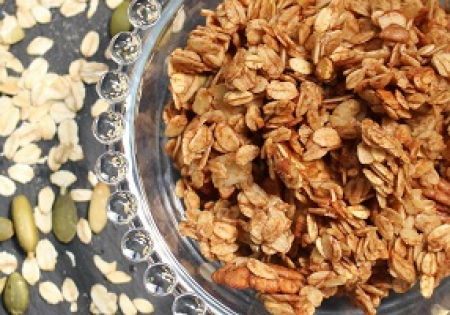
Disaccharides are a form of carbohydrate that can be found in a wide variety of the foods we eat, such as table sugar and beetroot. Disaccharides are an energy source used by the human body, but are also used by plants for a variety of different uses (including transporting nutrients around the plant).

How are our children’s teeth and how can we best promote dental health?

After a year and a half of debate, the decision about how to rate pure unsweetened fruit and vegetable juices has been made.

How nudge science might help achieve healthier eating habits.

The Canadian Medical Association defines obesity by health and not just weight.

The NHMRC have revised their previous alcohol guidelines published in 2009.

Beans and potatoes are delicious and naturally nutritious foods that many families incorporate into their daily meals. There are a wide variety of beans and potatoes available in supermarkets. They can be found fresh, frozen, canned and dried.

As humans, we’ve been interested in which foods help us reach the highest capacities for physical performance since the dawn of time.

No matter which sport you choose, it’s essential to have your body in peak condition when it counts. No matter your goals – be it a personal best or a place in the Olympics - allowing your body to achieve peak performance is something all serious athletes strive for.

The Australian Dietary Guidelines are up for review. How should environmental sustainability be incorporated?
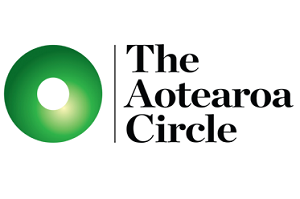
Many groups have been calling for it and now the first step toward a national food strategy has been taken.

How is the American Dietary Guidelines Advisory Committee incorporating the evidence to establish recommendations on sugar?

The Australian Institute of Health & Welfare (AIHW) has released their biennial report on the health of the nation.

The Healthy Food Environment Policy Index (Food-EPI) collated by INFORMAS consists of two components (Policies and Infrastructure Support), 13 domains and 47 good practice indicators.

How might taxes and subsidies improve public health in New Zealand?
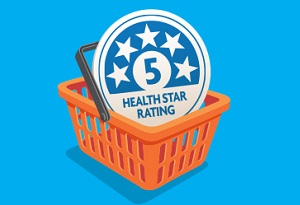
Decisions have been made on several outstanding recommendations to enhance the Health Star Rating (HSR) system.

What would a healthy, sustainable and affordable diet for New Zealanders look like?

Focussing on positive messages is a good strategy for public health.

Finally, the announcement we’ve all been waiting for in Australia.

FSANZ has started the process of research and consultation on how to make labelling of sugar in foods and drinks clearer and easier to understand.

Carbohydrate quality is important and this positive approach to improving diet has great potential to improve public health.

Might there be unintended nutritional consequences of a diet very low in free sugars?

When our broader food system is configured to deliver profits above all, public health and environmental sustainability suffer.

The World Health Organisation (WHO) has released a report, WHO Essential Nutrition Actions: mainstreaming nutrition throughout the life course.

Back in February, Emeritus Professor Elaine Rush from Auckland University of Technology presented to New Zealand Nutrition Foundation members, the results of a study she had led looking at New Zealand’s food exports and imports in relation to dietary guidelines.

As the world continues to reel from the coronavirus pandemic, food has taken on an important role to help us feel better in hard times.

The current global COVID-19 pandemic has disrupted food systems around the world.

The Healthy Food Partnership (HFP) is a collaborative program that allows the public health sector and the food industry to work together to tackle health issues such as obesity and encourage healthy eating by improving the food supply.

Chronic systemic inflammation is implicated in the development of numerous chronic diseases, including cancer, cardiovascular disease, diabetes, respiratory and musculoskeletal disorders as well as adverse mental health outcomes.

Fear surrounding the outbreak of COVID-19 has led to panic buying and stock-piling in Australia and New Zealand.

We compiled an evidence based submission to the National Obesity Strategy consultation, here is a summary of the submission.

Oat-based muesli bars are a popular snack food for kid’s lunchboxes and there are a wide range of products available.
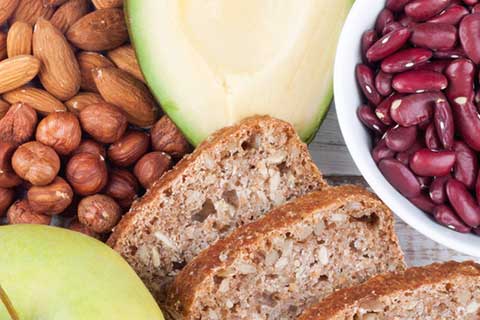
Australia’s catastrophic bushfires attracted the attention of the world. Lives have been lost, and bushland, homes, wildlife, farms and infrastructure destroyed by the sheer scale and savagery of the flames.

In the first update in 10 years, Australia’s National Health and Medical Research Council (NHMRC) has released draft recommendations for alcohol consumption. They recommend a reduced weekly limit of 10 standard drinks for healthy adults (1.4 a day), and no more than 4 drinks on any one day.

A panel of experts from the Academy of Nutrition and Dietetics, the American Academy of Paediatrics, the American Academy of Paediatric Dentistry and the American Heart Association, under the leadership of nutrition research organization Healthy Eating Research, have produced beverage guidelines for children from birth to age five.

Data from the Australian Bureau of Statistics (ABS) National Health Survey reports that 46% of young people aged 18-24 have a BMI over 25 and this is up from 39% since the 2014-15 figures - an 18% increase. This represents just over a million young people. Of these almost 350,000 are classified as obese- 15.5% had a BMI of 30 or more.

Data on food intake data in the first two years of life is limited, but there are some studies that report sugar intake in toddlers, including research conducted in Australia.

The French government agency - Agence nationale de sécurité sanitaire de l'alimentation, de l'environnement, et du travail (ANSES) (French Agency for food environmental and occupational health and safety) – has set new sugar intake recommendations for adults.

There is a lot of talk about the risks of overconsumption of added sugars in foods, but how much exactly is too much? How much are we eating and which foods are they coming from? Who are those most likely to be eating too much? How do we meet intake recommendations?

Presently there is no data on consumption of added sugar in New Zealand as the last national nutrition survey for adults (2008/09) and children (2002) analysed total sugar, sucrose and fructose only. Sucrose content is derived via chemical analysis and can only provide an approximation of total added sugars.

In this provocatively titled paper published in Progress in Cardiovascular Disease, Dr Edward Archer challenges the idea that sugar is responsible for the increased prevalence of obesity and chronic disease.

There has been a growing focus on the degree of processing of foods as a way of looking at the nutrition and health relationship. A classification system has been developed however it is worth looking at the evidence surrounding the concept of ‘ultra-processed foods’.

Women’s magazines, numerous websites and even some dermatologists warn against eating sugar because of its adverse effects on skin. They say it ages skin, making it look dull and tired. We investigate these claims and examine the evidence.

The Australian Beverages Council announced 80% of the (non-alcoholic) beverage industry including the big players Coca-Cola and Pepsi have signed up to their agreement to cut sugar in drinks by 20% between now and 2025.

Flavoured milk has attracted controversy because it contains added sugar. Dairy Australia have developed a new resource for health professionals on flavoured milk that gathers the evidence.

The New Zealand Ministry of Health engaged the New Zealand Institute of Economic Research (NZIER) to write a report on sugar taxes in 2017. The report has just been made public.

The Australian national broadcaster’s flagship current affairs program 4 Corners has weighed in to the sugar debate with their program, Tipping the scales that aired on Monday April 30.

The George Institute for Global Health and the Nielsen market research company have announced a new partnership to explore how nutrition information on food packages influences consumer choices.

Milo came under attack from advocacy groups such as Choice and The Obesity Policy Coalition because the HSR on pack was calculated based on the serving suggestion of Milo with skim milk (HSR 4.5), rather than the Milo powder on its own (HSR 1.5).

There is demand for sugar-free foods, but do the products deliver on their better-for-you promise? We investigate the two largest categories, soft drinks and confectionery.

The idea that eating sugar causes diabetes persists despite an increased understanding of the complex and multi-factorial aetiology of type 2 diabetes. We asked one of the nutrition community’s wise elders, Professor Paul Nestel for his words of wisdom on the topic.

The idea that sugar is an addictive substance that creates neurobiological changes similar to those in drug addiction is popular. The authors of this paper reviewed human and animal neuroscience studies on sugar and compared it with studies on drug addiction to find out if sugar could indeed be acting like a drug that could contribute to overeating and obesity.

Joanna Baker is a foodie, Dietitian and Registered nurse, who is passionate about digestive health. She now works exclusively on IBS and food intolerance, dividing her time between consulting as an advisor to FODMAP Friendly and Everyday Nutrition, her Melbourne based private practice.

Despite the media focus on sugar, our biggest nutritional issue is eating too many discretionary foods. The last National Health Survey results showed Australians over 2 years of age are consuming 35% of their total kilojoules as discretionary foods (1).

Interview with Dr Jane Muir
Dr Jane Muir is currently Head of Translational Nutrition Science in the Department of Gastroenterology at Monash University. She is a trained dietitian with a PhD in biochemistry and has over 20 years experience in the area of nutrition research. Her major research focus has been on the important role of fermentable carbohydrates in the health of the gastrointestinal tract.

Fructose has developed a bad name, with some products even boasting they are free-from fructose. While there are varied concerns around fructose, we’ve chosen to focus on claims around adverse affects on the liver.

Obesity is a global epidemic, leading to serious diseases, premature death and increased health costs (1). New Zealand and Australia currently rank in the top five most obese nations in the OECD and show little sign of improving, with obesity continuing to climb in both countries, increasing across all age groups and both genders in the last decade (2,3).

Interview with Louise BurkeOAM, PhD, APD, FACSM
Louise is a sports dietitian with over 35 years of experience with elite athletes. She has been Head of Sports Nutrition at the Australian Institute of Sport since 1990 and the team dietitian for the Australian Olympic Teams for the 1996-2012 Summer Olympic Games.

A sugar tax is a tax on sugary drinks, also called a Sugar Sweetened Beverage Tax (SSBT). Public health advocates say an SSBT in Australia and New Zealand could help reduce consumption of SSBs and thereby reduce obesity and other associated diseases.

The data in this report was obtained from an online survey of a nationally representative sample of 3000 consumers and food decision-makers aged over 18 years conducted in December 2015.

Dyslipidemia refers to abnormal levels of lipids in the blood: typically, elevated levels of total cholesterol (TC) and low density lipoprotein cholesterol (LDL-C), elevated triglycerides (TG) and/or low levels of high density lipoprotein cholesterol (HDL-C). There is debate as to whether high TG themselves contribute to cardiovascular risk, or whether they are just a marker of risk because high triglycerides are linked to low HDL-C, obesity and type 2 diabetes. Whether high TG are a participant in- or just a spectator of - increased cardiovascular risk remains unclear.

Our consumption of added sugars has been widely debated. Now, hot on the heels of the Lei et al (2016) paper from Sydney University we reported on last month, the ABS has released a secondary analysis 'Australian Health Survey: Consumption of Added Sugars' using the same methodology (modified slightly) and finds similar results.
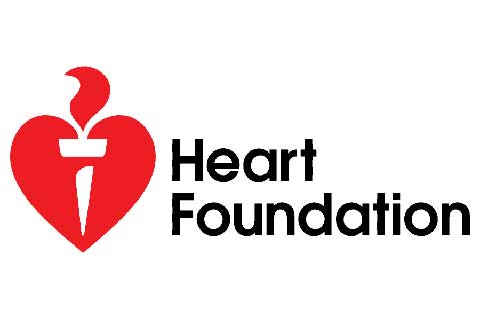
The National Heart Foundation of Australia is retiring its Tick Program after 26 years (the New Zealand Heart Foundation Tick Program is continuing).

Wellness enthusiasts promote the health benefits of ‘real food’ that is as close to nature as possible. When it comes to added sugars “natural” sugars are seen as healthier than refined cane sugar. Maple syrup and honey are recommended over cane sugar, and fruit syrups are used in order to make ‘no added cane sugar’ claims on foods, but are they better for you than regular cane sugar?

Some evidence suggests low-carb, high protein diets may lead to greater weight loss in the short term. However, very low carbohydrate, high protein diets may not be safe in the long term. Low carb and low-sugar diets are based on the notion that carbohydrates and sugar are specifically problematic for weight gain.

Athletes are now spoilt for choice when it comes to the plethora of sports drinks on the market. With varying osmolality, electrolyte composition and carbohydrate levels there are many considerations an athlete must make (including flavour and personal tolerability) when choosing the appropriate sports drink.

By Bill Shrapnel
Professor Jennie Brand-Miller from Sydney University refers to carbohydrate as the ‘default nutrient’ – nutritionists assumed it was beneficial for health because they were concerned about everything else. Saturated fat raised LDL-cholesterol; unsaturated fats were still fats and therefore were treated with suspicion; protein was assumed to be a constant; and alcohol was out of the question.
The low-down on sugar
according to the science
Facts on sugars, nutrition
and health issues
Natural v added sugars
- what's the difference?
Keep up to date with the latest news and publications from Sugar Nutrition Resource Centre.
Locked Bag 2222
North Ryde NSW 2113 Australia